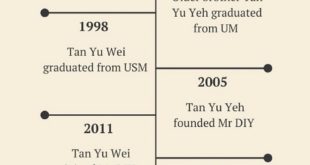COVID-19 vaccine rollout is one of the main topics of early-2021, with a few countries – Israel, United Arab Emirates (UAE) and United Kingdom (UK) in particular — surging ahead of everybody else in vaccination rates.

But the real winners aren’t those who race ahead to inoculate as many of their citizens as possible, but the ones who don’t have to. Singapore is one of them.
Singapore has managed to not only reduce community transmissions to near zero, but also contained a major outbreak among its migrant worker population last year.
They prevented the virus from spilling out of the tightly-packed dorms the immigrants live in, despite being one of the most densely inhabited countries in the world.
Border closures, lockdowns, social-distancing, mask mandate and meticulous contact tracing – including the adoption of TraceTogether by over 70 per cent of the population – have yielded invaluable benefits in 2021. This allows the country to carry out its vaccination campaign in an organised, careful manner.
While Israel, UK and UAE are lauded for their rapid vaccination rollout, they had no other choice as they have been fighting major outbreaks in the past two months, which have taken the lives of thousands of people.

In mid-January, the UK recorded 60,000 new cases daily. Meanwhile, it was about 8,000 in Israel, while UAE hit its peak recently with close to 4,000.
Since the pandemic began, over 112,000 people have died in Britain, over 5,000 in Israel, and close to 1,000 in UAE. However, in Singapore, the death toll stopped at just 29.
For an outbreak to be comparable in severity — in proportion to population — Singapore would have to register between 2,000 (vs. UAE) and 5,000 (vs. UK and Israel) cases every single day – and up to 10,000 dead in total.
Instead, it has been recording no more than 20 to 30 cases daily not only in January, but for nearly six months now since September 2020 (with most of them imported by returning residents).
In other words, the situation in the city-state is 100 to 200 times less severe than in the countries with the highest vaccination rates.
This shows that they’re not the success stories they are made out to be, but rather examples of desperation in the face of a national healthcare crisis.
Concerns over public health, however, have not been their only motivation.
Governments in Israel and UK have also had political reasons for ramping up vaccination efforts: the incoming elections to Knesset (fourth in a span of two years) and Brexit, respectively.
All Votes Matter

For Israeli Prime Minister Benjamin Netanyahu, vaccines are a great weapon not only against COVID-19, but political opponents as well, as it could help him break the stalemate that has paralysed the country for the past two years.
A world-leading vaccination program could give political party Likud enough of bump in the polls to provide a few more seats, which it has been unable to create a stable government without.
Boris Johnson, on the other hand, is using the vaccine program to show the society that Brexit made sense, as the rest of Europe is – at least on the surface – lagging behind the UK.
It is a success story Downing Street needs to distract the public opinion from the pains of the divorce with the EU, which has left empty shelves in many supermarkets and created long delays at the borders, hurting businesses which have already been struggling due to the pandemic.
Driving vaccination statistics up supports Johnson’s narrative that Britain is better off on its own, even as the enormous costs of this campaign are hidden away from public view.
Everything Comes At A Price
First, there’s the cost of mass vaccination.

UK is paying more for than it would as an EU member (even for the British made AstraZeneca vaccine, which is expected to cost around $ 3 per dose in Britain, compared to $ 2.15 in the EU).
Israel, similarly, has only managed to secure millions of doses so quickly by paying a much higher price for its Pfizer vaccine – around $ 23.50 per dose, compared to $ 19.50 in the US and $ 14.70 in the EU.
It has also agreed to share medical data with the company, triggering a heated debate about privacy protections.
Meanwhile, the British government is experimenting with mixing different vaccines and has decided to extend the time between two shots of Pfizer and Moderna mRNA variants — from the recommended three to a whopping 12 weeks – drawing strong criticism from the medical community.
This decision allows the authorities to rapidly push the vaccination numbers up, without having to wait like other countries do. Many opt to keep second doses in storage for weeks, so that everybody who gets the first shot has a guaranteed follow up dose, in case of delays in shipments.
While Johnson’s administration is defending its choices, saying that it simply wants to provide at least some degree of protection to as many people as quickly as possible, extending the time between the doses from three weeks to three months (on shaky scientific grounds and against recommendations of the manufacturers and many doctors) is showing how the government is willing to gamble with people’s lives.

As if that wasn’t enough, it has now been revealed that the AstraZeneca’s viral vector vaccine – that the British government is using in parallel with mRNA alternatives – provides lower protection in the elderly and fails against the South African variant of the virus.
Considering that the company is currently supplying around one to two million doses to the UK every week, the government’s hastiness may leave several million people without proper immunity and cause a resurgence of the virus later in the year.
It turns out then, that the world’s leading vaccination programs are more a desperate gamble by politicians seeking to both control massive outbreaks of the virus they had failed to suppress in the months prior and win popularity with the public in a politically crucial time for them.
It is only in this context that one can genuinely appreciate the situation that Singapore is in (among very few other countries).
While it has secured more than enough doses for its entire population, it can now patiently wait for them to be delivered and then vaccinate each of the scheduled groups without any rush, minimising risks and refraining from dangerous experiments.
It also has the comfort of observing and learning from experiences of other countries and results different vaccines deliver, fine-tuning its own vaccination campaign in the process for the best results with the fewest trade-offs.
Since the local economy is out of lockdowns, with only minor restrictions imposed on some industries, the next major step for Singapore would be reopening its borders. This move depends not only on the local, but global situation as well.
Even with a completely vaccinated population, major risks remain. No vaccine guarantees complete immunity and with efficacy of 95 per cent, meaning that close to 300,000 people in the country could still be at risk of developing an infection if exposed to the virus.
That’s why Singapore can’t just reopen its borders to millions of people, even if all residents take their jabs.
It has to do it gradually, with the countries that have their own outbreaks under control. Sadly, at the current pace, achieving herd immunity is going to take the most developed nations until the end of 2021, perhaps early 2022.
Finding The Missing Piece
There are still many things we don’t know about the COVID-19 vaccines, mainly: how long does the protection last for?
We know that post-infection immunity should last for around eight months or more, but it also differs from person to person as there have been cases of reinfections.
We also know that a single dose of mRNA vaccines offers partial protection for up to two to three months, but we have yet to discover what happens after you receive the recommended second booster dose.
Evidence suggests we could expect at least a year of immunity – perhaps more. But the virus continues to mutate, and we don’t yet know how well we may be protected against its new variants.
As I mentioned above, the viral vector vaccine from AstraZeneca – which is most likely to be the dominant vaccine around the world due to its much lower price compared to mRNA competitors – is already proving to underperform against the South African variant.
As a result, it is quite likely that we may require further booster shots (or new vaccines) in the coming years before the virus is defeated.
Most importantly, it may mean that the countries that are now rushing to vaccinate their populations early and in great numbers are going to face a similarly burning need a year or two from now, when immunity of those millions inoculated may begin to drop at the same time.
A slower, gradual rollout initially delays achievement of herd immunity, but provides extended protection later as smaller portions of the society have to be vaccinated month after month in the following years.
This puts less stress on the healthcare system and poses a smaller risk of a new outbreak. This is why it’s important for Singapore to maximise its vaccinations as they arrive on a regular basis, instead of waiting.
Singapore may have bought itself time, but it’s now on to the residents to make the most of the vaccines which arrive in the country.
They cannot be lingering in warehouses for months so when it’s your turn to get the shot, please do so. You’re going to get it in the best time for yourself — and for the country.
Featured Image Credit: Reuters



